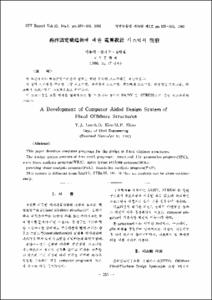SOCIAL POWER: PERSPECTIVES, CONCEPTUAL LIMITATIONS, AND HUMBLE SUGGESTIONS
- Alternative Title
- 사회학적 관점에서의 POWER: 이론, 개념적인 문제점, 및 소박한 제안
- Abstract
- 이 논문에서는 power에 관한 4가지의 관점들을 소개한다. 교환이론은 power에 관한 아주 간결한 설명을 제시한다. 이 교환이론에 따르면, 두 사람 사이의 교환관계에서 다른 사람이 원하는 자원이나 서비스를 제공하는 사람은 power를 갖게 된다는 것이다. 이 논리가 간단명료하고 그럴싸하기는 하지만, 교환이론은 power를 분석하는 데 있어서, 그 교환관계를 둘러싸고 있는 외적 요인을 거의 고려하고 있지 않다는 지적을 받는다. Network analysis라는 이론은, 많은 사람들이 어울려있는 네트웍에서 사람들의 전략적인 위치에 관심을 두어 power를 설명한다. 즉, 중요한 정보나 자원의 유통을 마음대로 통솔할 수 있는 지위에 있는 사람은 power를 갖게 된다는 것이다. 이 교환이론과 network analysis는 power와 power의 잠재성을 동일시한다는 비판을 받는다. 막스 베버는 몇 가지의 기준을 가지고 권위와 power를 구별한다. 그러나 이 베버의 분류는 명쾌하지 못할 뿐 아니라, 이따금 오해의 소지가 있는 점을 노출시킨다. 자원의존이론은, 조직에서 조직의 생존에 필요 한 가장 중요한 자원을 제공하는 조직의 구성원이 power를 갖는다고 주장한다 그러나 자원의존이론 역시 어떻게 조직 구성원들이 중요한 자원을 확보 하는가하는 과정을 설명하지 못하는 논리적인 문제를 내포하고 있다.
This paper presents four perspectives of power. Exchange theory provides a succinct conceptualization of power. According to the theory, in an exchange between two actors, power accrues to the one who provides the resource or service for which the other actor depends on. Although the logic is straightforward and plausible, exchange theory hardly considers in its analysis of power the effects of external conditions. Network analysis explains power by focusing on the strategic positions of actors in a multi-actor network. Those actors who are placed in the positions through which they can command the flows of critical information or resources can claim power. Both exchange theory and network analysis are, however, criticized for equating power with potential of power. Max Weber distinguishes between authority and power employing a couple of criteria. But Weber's conceptualization of power and authority is confusing and misleading at times. Resource dependency theory focuses on organizational dependency. Resource dependency theory argues that the actor who provides the most critical resources for organizational survival comes to have power Resource dependency theory, however, suffers a logical problem of not being able to explain the process through which actors acquire critical resources.
This paper presents four perspectives of power. Exchange theory provides a succinct conceptualization of power. According to the theory, in an exchange between two actors, power accrues to the one who provides the resource or service for which the other actor depends on. Although the logic is straightforward and plausible, exchange theory hardly considers in its analysis of power the effects of external conditions. Network analysis explains power by focusing on the strategic positions of actors in a multi-actor network. Those actors who are placed in the positions through which they can command the flows of critical information or resources can claim power. Both exchange theory and network analysis are, however, criticized for equating power with potential of power. Max Weber distinguishes between authority and power employing a couple of criteria. But Weber's conceptualization of power and authority is confusing and misleading at times. Resource dependency theory focuses on organizational dependency. Resource dependency theory argues that the actor who provides the most critical resources for organizational survival comes to have power Resource dependency theory, however, suffers a logical problem of not being able to explain the process through which actors acquire critical resources.
- Issued Date
- 1995
- Type
- Research Laboratory
- Alternative Author(s)
- 전성표
- Publisher
- 사회과학논집
- Language
- eng
- Rights
- 울산대학교 저작물은 저작권에 의해 보호받습니다.
- Citation Volume
- 5
- Citation Number
- 2
- Citation Start Page
- 235
- Citation End Page
- 260
- Appears in Collections:
- Research Laboratory > Journal of social science
- 파일 목록
-
-
Download
 000002025062.pdf
기타 데이터 / 286.35 kB / Adobe PDF
000002025062.pdf
기타 데이터 / 286.35 kB / Adobe PDF
-
Items in Repository are protected by copyright, with all rights reserved, unless otherwise indicated.